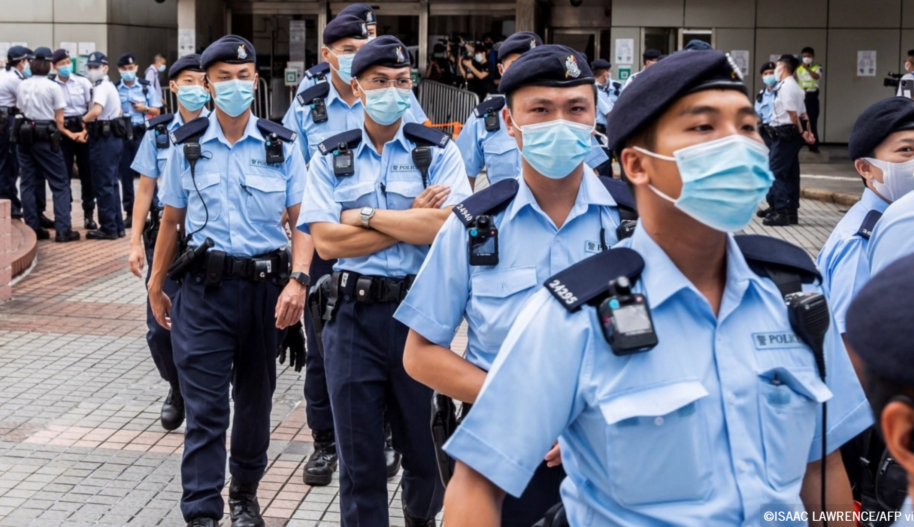As Hong Kong’s biggest national security law trial of 47 democracy advocates began today, Amnesty International’s Deputy Regional Director Hana Young said:
“This case has been an obscene injustice since the unprecedented mass prosecution of the 47 defendants began in March 2021.
“In a trial that lays bare the intrinsically abusive nature of the national security law, some of the defendants face up to life in prison simply for taking part in political party ‘primaries’.
“They are forced to make the impossible decision between pleading guilty to a non-existent crime for a potential reduction in sentence, or fighting a losing battle under the unjust national security law.
“Most of the 47 have been detained for two years without trial, due to the extremely stringent bail threshold which in effect creates an assumption against bail in national security cases. Whatever happens in the trial, that injustice alone can never be undone.
“With this mass trial, the Hong Kong government is attempting to shut off all meaningful political participation in Hong Kong. But the fact that people came to the court today to protest against these prosecutions, despite the risks, showed that the Hong Kong authorities will never be able to fully crush dissent.
“People must be allowed to freely express their opinions in Hong Kong, without the threat of jail. Peaceful political opposition is not a crime.
“The charges against the 47 are based entirely upon claimed hypothetical threats to national security. All those still detained in the case should be immediately released and the charges against all dropped.”
Background
In Hong Kong’s largest prosecution under the national security law, which was enacted in June 2020, the 47 defendants are jointly charged with “conspiracy to commit subversion”.
The charges relate to their organization and participation in self-organized “primaries” for the 2020 Legislative Council elections that were ultimately postponed by authorities as the central Chinese government brought in a new electoral system that strictly vetted who could stand for office.
At the time, the then Hong Kong Chief Executive Carrie Lam said the “primaries” were illegal and warned that they could be in breach of the national security law that had been enacted only weeks earlier.
To treat self-organized “primaries” conducted by political parties to select candidates to put forward for elections as a genuine threat to Hong Kong’s existence, territorial integrity or political independence does not meet the high threshold of application for “national security” that international human rights standards require.













